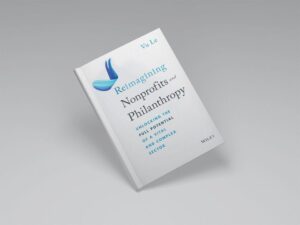
July 26, 2017; New York Times
As of last week, 52.25 percent of the privately held Chinese conglomerate HNA Group is now owned by the New York-based Hainan Cihang Charity Foundation (29.5 percent) and the China-based Hainan Province Cihang Foundation (22.75 percent). HNA Group executives say they plan to donate all their shares to the two foundations when they resign or die. HNA expects the two foundations to eventually own 100 percent of HNA Group.
NPQ is interested in Chinese philanthropy, but this is the first time HNA Group and its foundations have warranted notice. While this action theoretically places HNA’s foundations among the world’s most prominent, it inspires more questions than admiration and gratitude.
While HNA Group has $146 billion in assets and is the largest Chinese investor in the U.S., much of its assets are encumbered by debt and held through complex cross holdings.
HNA’s murky ownership structure is one reason Bank of America Corp., Citigroup Inc. and Morgan Stanley are not investing in HNA because of difficulties with “know your customer” rules. These anti-money-laundering regulations also apply to nonprofits.
It does not help HNA’s case for transparency that its largest “shareholder,” who transferred 29.5 percent of HNA Group to the Hainan Cihang Charity Foundation (approximately $18 billion), Guan Jun, remains a mystery. Writing for the New York Times, Michael Forsythe reports that the 30-something Beijing businessman lives in a small apartment at the end of a “dingy hallway littered with discarded furniture and bags of trash.”
The decision to transfer Mr. Guan’s stake to the foundation, HNA said, was to allay concerns over its shareholding. Scrutiny of its ownership had escalated after Anthony Scaramucci, the new White House communications director, announced in January that he was selling his hedge fund to an HNA subsidiary.
Instead, HNA, in making the unusual decision to transfer such a large portion of its ownership to an American foundation, raises questions about how it will comply with United States tax law.
Sign up for our free newsletters
Subscribe to NPQ's newsletters to have our top stories delivered directly to your inbox.
By signing up, you agree to our privacy policy and terms of use, and to receive messages from NPQ and our partners.
IRS rules generally prohibit foundations from owning more than 20 percent of a company, though Forsythe and the Times article co-writer, Alexandra Stevenson, report that the “percentage can be reduced much further, to as low as 2 percent, if major shareholders have a hand in running the foundation, tax lawyers say.” In any event, the Hainan Cihang Charity Foundation (set up in December 2016) will be required pay out 5 percent of the holdings each year, which could amount to many hundreds of millions of dollars. Eric Schneiderman, the New York Attorney General, sent a letter to the foundation last Thursday requesting more information about its intentions.
Giving HNA Group the benefit of the doubt, there are examples of foundations that own companies, especially in Denmark. According this research paper, foundation-owned companies account for 5 to 10 percent of the Danish economy, they make up the bulk of the stock market, and they make charitable donations of approximately half a percent of Danish GDP. Apparently, this structure protects against takeovers and fosters more stable management.
Under pressure by regulators in the U.S. and China, HNA Group’s recent actions raise far more questions than answers. Forsythe and Stevenson conclude their report with this observation.
Earlier this year, at a hedge fund conference where he once played host, Mr. Scaramucci called HNA “one of the more magnificent conglomerates coming out of China.” He also encouraged the audience, gathered at the Bellagio Hotel in Las Vegas, to get to know Guang Yang, the chief executive of HNA Capital, who was also in attendance.
Mr. Scaramucci did not respond to an email requesting comment on Wednesday.
Regulators may also want to get to know Mr. Yang. He is the person who signed Hainan Cihang’s annual return filed to the IRS.
—James Schaffer












